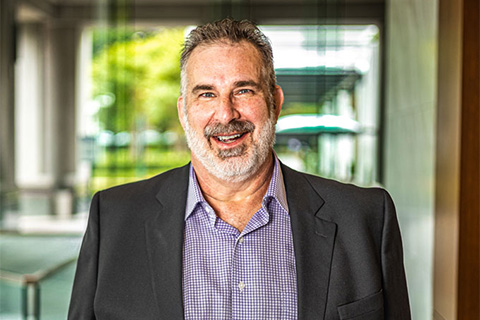Resurrected Superfund Chemical Excise Tax Creates New Filing Requirements for US Manufacturers
July 14, 2022
At a glance
- The main takeaway: The Infrastructure Investment and Jobs Act passed by Congress in November 2021 restored the long-dormant Superfund Chemical Excise Tax on the sale, use, manufacture, or import of a lengthy list of specified chemicals and substances. The quarterly tax took effect on July 1 and will require impacted companies to calculate tax on the listed substances and pay excise based on tonnage, with a published schedule based on the specified substance.
- Impact on your business: US companies that use, manufacture, sell, or import the listed chemicals and/or substances will need to identify and begin calculating the impact of those activities to comply with the new excise tax. There are still several open questions and issues on which the IRS will need to provide guidance, but the initial form and fee schedules have been published, so businesses subjected to the new tax can prepare for the first quarter’s reporting and payment, due on October 31, 2022.
- Next steps: This revived tax will create additional compliance burdens on impacted companies. Your Aprio tax advisor can help you determine whether your business will be subject to this newly restored tax and can guide you through the complex filling requirements created by the Superfund Chemical Excise Tax.
Schedule a consultation with the Aprio Manufacturing & Distribution Team Today.
The full story:
The Infrastructure Investment and Jobs Act (IIJA or Infrastructure Bill) revived the long-dormant Superfund Chemical Excise Tax on the sale, use, manufacture and/or import of certain chemicals and substances. These taxes, informally called the “Superfund,” were initially incorporated in the Comprehensive Environmental Response, Compensation, and Liability Act (CERCLA) of 1980, and were imposed to facilitate the cleanup of hazardous waste sites. After various extensions, the Superfund tax expired on December 31, 1995.
The reinstitution of this tax will create significant compliance challenges, which will be exacerbated by the lapse of time since the tax first expired and the technological advancement that has occurred in the past quarter century. Owners and managers of businesses impacted by the revived Superfund tax, as well as their tax advisers, will need to become reacquainted with the particular requirements of the new excise charge.
A closer look into the new Superfund tax
This revived Superfund tax has two components, found in two separate sections of the Internal Revenue Code (IRC). The first and main tax imposes an excise on a US manufacturer, producer, or importer for the sale or use of certain hazardous chemicals. The list of chemicals was initially based on those found on CERCLA cleanup sites and are listed in IRC Section 4661(b). The tax becomes due on the first use or first sale of a listed chemical within the US, its possessions and territories.
The second component of the Superfund tax imposes duties on the importation of certain listed “taxable substances.” The law defines “taxable substances” as any substance that contains 20%, greater weight, or chemical composition of any of the 42 taxable chemicals listed in IRC 4661(b). The original threshold for a substance to constitute a taxable imported substance for Superfund purposes was 50% composition. The Code provided an initial list of 50 such taxable substances; however, the IRS added approximately 100 additional substances to the list found in the statute, based on the revised threshold contained in the IIJA.
Unlike the fixed schedule provided for taxable chemicals, the IRS provides some latitude in calculating the excise on taxable substances. Under the default method taxpayers compute the tax based on the percentage amounts of taxable chemicals found in the substance; alternatively, taxpayers may use a flat rate of 10% of the value at the time the substance was imported into the US.
If eligible, exemptions do exist
Additionally, importers are allowed to claim exemptions for certain taxable substances, most notably butane and methane when used as fuel. These exemptions can create additional compliance complexities down the supply chain, as imported butane and methane become taxable when they are first used for purposes other than fuel. This creates a scenario where butane or methane are imported as fuel and thus exempt become taxable at a lower level of the supply chain when used downstream for purposes other than fuel.
The excise tax return is filed quarterly, using existing Form 6627 Environmental Tax as an attachment to Form 720 Quarterly Federal Excise Tax Return, which is the main form used to report and remit quarterly excise taxes. The first period for which this tax is due ends on September 30, 2022, with a filing date due on or before October 31, 2022. Semi-monthly deposits are required for covered taxpayers; the IRS has posted guidance on seeking relief for taxpayers who miss their initial deposit requirements.
The bottom line
The Superfund tax will create significant compliance challenges, not least of which will be caused by the fact that many tax advisers and corporate professionals with experience in how the original Superfund tax functioned may have retired. It’s been over a quarter century since businesses had to collect the information required to comply with the Superfund tax regime. It’s likely that impacted companies will need to update their information systems to collect the required transaction data to calculate the excise tax. Aprio’s Manufacturing and Distribution Services team can provide you with the guidance your company needs to navigate this resurrected tax obligation to help you properly calculate, report and remit required taxes, as well as determining your eligibility for potential refunds and requesting exemptions.
Related resources
Recent Articles
About the Author
Mitchell Kopelman
As national leader of the firm’s Technology industry client base, Mitchell coordinates and collaborates with leaders across all service lines supporting the firm’s technology clients providing a range of services. Mitchell has been a partner with Aprio since 1990. He works with domestic and multinational clients in a range of technology industries, including software, blockchain, gaming, prop tech, fintech, healthtech, IT, generative AI, and privacy and security. Mitchell helps business owners, venture and PE investors, and C-level executives achieve their business objectives, from pre-revenue startups to high growth liquidity events.
(404) 898-8231
John Rose
John Rose is Aprio’s National Tax Director of the Professional Practice Group. He has extensive experience interpreting complex tax regulations and structures to maximize client understanding and manage risk. In his role, John works closely with the firm’s tax team to continuously advance Aprio’s tax knowledge base and resources to ensure the quality of tax deliverables and client service.
(770) 353-4728
Stay informed with Aprio.
Get industry news and leading insights delivered straight to your inbox.


